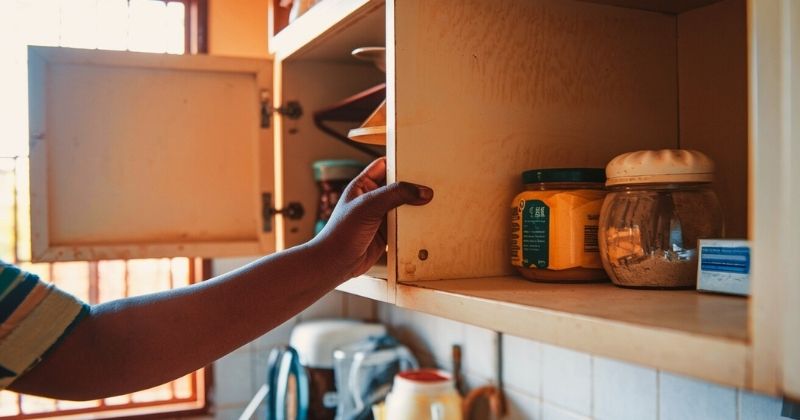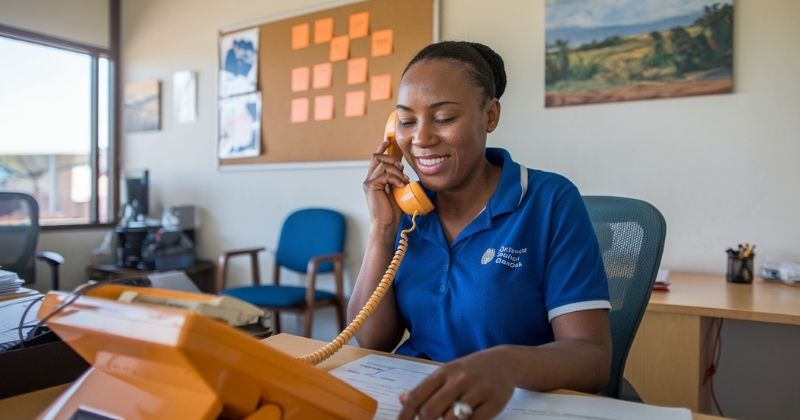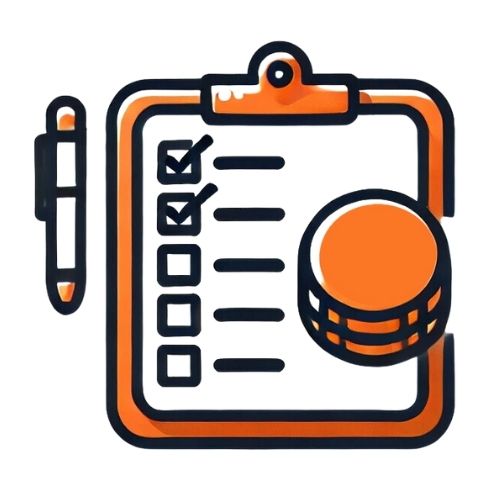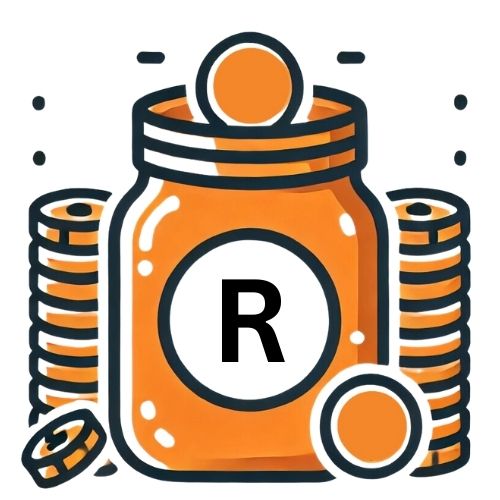
South Africa has allocated substantial resources to social enrichment programmes, aimed at addressing inequality and mitigating the most severe impacts of poverty. These initiatives encompass free essential services, accessible education, and social housing for underprivileged communities, alongside a comprehensive system of social security grants.
Key Takeaways
- South Africa’s Social Support System: South Africa offers vital support through social programmes, including grants for children, pensioners, and individuals with disabilities, alongside initiatives like free essential services and social housing. However, widespread unemployment and poverty continue to challenge these efforts.
- Accessing Emergency Aid: Organisations such as Gift of the Givers, local food banks, and community kitchens provide critical assistance during financial hardship. Additionally, leveraging government relief funds, social grants, and NGOs can help address immediate needs like food, shelter, and healthcare.
- Staying Safe During Crises: To avoid exploitation, verify the legitimacy of organisations offering help and protect personal information. In cases of exploitation, report incidents to authorities such as the South African Human Rights Commission (SAHRC) or via Crime Stop at 08600 10111 or the MySAPS app. Being cautious ensures access to genuine support while safeguarding personal safety.
About Arcadia Finance
Arcadia Finance makes loan applications simple and stress-free. With no application fees and a network of 19 reliable lenders accredited by South Africa’s National Credit Regulator, you can trust us to provide the financial solution you need.
Economic Imbalance in South Africa
Economic inequality remains a harsh reality for many South Africans, exacerbated by severe unemployment and an education system in disarray. Current figures paint a troubling picture of the nation’s challenges:
- Poverty levels are staggering, with approximately 55.5% of the population (30.3 million people) living below the national upper poverty line. Additionally, 13.8 million individuals—25% of the population—experience food poverty.
- By the fourth quarter of 2023, South Africa’s unemployment rate reached 32.1%, with youth unemployment surging to 59.7% in early 2024. Among job seekers aged 15-24, who are neither in school nor training, only four in ten are able to secure employment.
The combination of poverty, inequality, hunger, crime, and limited parental education severely affects educational outcomes, especially in predominantly black and rural communities. These challenges are compounded by political instability, declining trust in public institutions, and the growing emigration of skilled professionals. Together, these factors present a daunting outlook for many South Africans.

Assessing Your Situation
Evaluating Immediate Needs: Food, Shelter, and Healthcare
- Food: Check your food supply, focusing on non-perishables like rice or tinned goods. If none is available, seek help from local food banks or community kitchens.
- Shelter: If you’re at risk of homelessness, contact shelters such as The Haven Night Shelter or MES for emergency housing options.
- Healthcare: Public clinics and hospitals offer free or low-cost services for urgent medical needs. For mental health support, contact SADAG for free counselling.
Taking Stock of Available Resources
- Family and Friends: Reach out to loved ones who might help with meals, shelter, or financial support.
- Local Support: Community initiatives, religious groups, and stokvels often provide assistance like food parcels or temporary aid.
- Public Services: Your local municipality may offer relief programmes or emergency support.
Quickly assessing your situation and using available resources is the first step to addressing an emergency.

Government Assistance Programs
Accessing Social Grants and Relief Funds
The South African government provides various social grants to assist those in financial distress, such as the Child Support Grant, Older Person’s Grant, and Disability Grant. If you meet the criteria, you can apply through the South African Social Security Agency (SASSA). Additionally, during times of crisis, temporary relief funds like the Social Relief of Distress (SRD) Grant may be available. Check the SASSA website or visit a local office to determine eligibility and application requirements.
Key Government Agencies
Contact SASSA or your local Department of Social Development office for assistance. These agencies can guide you on available programmes and the necessary steps to apply for support.
How to Apply
Bring your South African ID and any other required documentation (such as proof of income or unemployment) when visiting a SASSA office. Many applications can also be initiated online or via the official SASSA WhatsApp number.
If you’re awaiting approval for social relief grants, understanding SASSA status pending can help you navigate the process more efficiently. This detailed article walks you through checking your application status and what to do if delays occur.
Non-Profit and Community Organisations
Major Charities and NGOs
South Africa has several non-profit organisations (NGOs) providing food and financial assistance. For example, Gift of the Givers operates nationwide, offering food parcels and emergency support. FoodForward SA distributes surplus food to various community groups.
Community Kitchens and Food Banks
Local community kitchens and food banks often provide hot meals and food hampers. Contact organisations like Ladles of Love or check local religious institutions for similar services.
Religious and Faith-Based Networks
Churches, mosques, and temples frequently run feeding schemes and emergency aid programmes. Contact a nearby religious organisation for support or referrals to other assistance programmes.
Leveraging Digital Platforms and Apps
- Platforms like foodparcel.co.za help locate nearby food banks or feeding schemes. Many NGOs also share updates about relief efforts on their social media pages.
- Community groups on Facebook or WhatsApp often share information about local aid. Use these platforms to connect with people offering help in your area.
Desperation can sometimes lead to risky financial decisions. Learn the red flags and smart practices for avoiding loan scams so you can make informed choices and protect your hard-earned money.

Emergency Hotlines and Helplines
Contact Numbers for Immediate Assistance
- SASSA Helpline: 0800 60 10 11
- Gift of the Givers Emergency Line: Check their website for regional contact details.
- Childline SA (for vulnerable children): 116 (toll-free).
These hotlines connect you to immediate resources or provide guidance on next steps.
What to Expect When Reaching Out
Prepare to share basic details about your situation, such as the number of dependents and your immediate needs. Most organisations aim to respond quickly to critical situations.
Tips for Managing Emergency Situations
When facing a financial or food emergency in South Africa, it is crucial to know how to effectively communicate your needs and protect yourself from exploitation. Here are practical tips to guide you through challenging times:
How to Communicate Your Needs Effectively
- Be Clear and Specific: When seeking help, clearly outline your immediate needs, such as food, shelter, or medical assistance. This helps organisations or individuals provide the right support efficiently. For example, you could say, “I need food for my family for the next few days,” rather than simply stating, “I need help.”
- Reach Out to the Right People and Organisations: Contact organisations that specialise in providing emergency assistance, such as NGOs, religious groups, or government agencies. Examples in South Africa include Gift of the Givers, the Solidarity Fund, or your local Department of Social Development office.
- Be Prepared to Provide Documentation (If Required): Some assistance programmes may require identification or proof of your situation. Keep documents like your South African ID, proof of address, or child grant details handy. If you don’t have these, explain your situation clearly to explore alternative options.
- Use Multiple Communication Channel: If you cannot reach someone by phone, try alternative methods such as email, social media, or visiting local offices. Many organisations in South Africa are active on platforms like Facebook and WhatsApp, making it easier to connect with them.
- Ask Questions: When speaking with support providers, ask specific questions to understand how they can assist you and what is required. For instance, “What documents do I need to apply for a food parcel?” or “How soon can I expect help after applying?”
Staying Safe and Avoiding Exploitation in Times of Crisis
In a crisis, it’s crucial to stay vigilant and protect yourself from exploitation. Always verify the legitimacy of organisations or individuals offering assistance, ensuring they are recognised by reputable sources like the South African Department of Social Development. Avoid sharing sensitive personal information, such as your ID number or banking details, unless you are certain the provider is credible. If you need to meet someone offering help, choose a safe, public location and bring a trusted person if possible. Be wary of demands for payment for free services like food parcels or shelters, and avoid predatory loan sharks (mashonisas) whose high-interest rates can worsen financial hardship.
If you experience or witness exploitation, report it to local authorities, the police, or organisations such as the South African Human Rights Commission (SAHRC). You can also contact Crime Stop at 08600 10111 or use the MySAPS app to report anonymously. Taking these steps helps protect not only yourself but also others who might be vulnerable to similar exploitation. Staying cautious and informed ensures you can access genuine assistance while safeguarding your wellbeing.

Personal Budgeting
Budgeting is an essential tool for managing your finances effectively. It allows you to assess whether you have sufficient funds to cover your needs and wants. A well-structured personal budget offers both control and financial flexibility, along with many other benefits.

Take Control with Budgeting
A practical budget enables you to prioritise your spending while managing your monthly expenses effectively. By setting up a budget, you gain a clear understanding of your income and expenses. This awareness helps you stay on top of bills, reduce current debt, avoid future debt, and identify areas where you may cut unnecessary costs or save money.

Support Your Financial Goals
A budget is not a fixed plan; it adapts to your changing needs and circumstances. Regularly updating your budget allows you to track your expenses, work towards financial stability, and achieve future financial objectives.
Whether saving for a holiday, paying off debt, building an emergency fund, or simply ensuring you avoid overspending, budgeting helps you remain focused and motivated. Knowing your financial targets keeps you aligned with your long-term goals.

Plan for Now and the Future
A realistic budget is key to building a strong financial foundation. Sticking to your plan allows you to secure your current financial position while preparing for future needs. With proper budgeting, you can establish a pathway to financial stability and confidence.
Conclusion
In times of financial and food emergencies, South Africa offers a range of support options through social grants, community organisations, and non-profit initiatives. While systemic challenges like unemployment and poverty remain significant, individuals can access immediate assistance by reaching out to legitimate programmes and leveraging resources such as food banks, shelters, and government relief funds. Staying informed, cautious, and connected to your community is crucial for navigating crises safely and effectively. Remember, help is available, and taking the right steps can lead to relief and a path toward recovery.
Frequently Asked Questions
The South African government provides various social grants through the South African Social Security Agency (SASSA), such as the Child Support Grant, Older Person’s Grant, and Disability Grant. Temporary assistance like the Social Relief of Distress (SRD) Grant is also available during emergencies. You can apply at SASSA offices or online, depending on the programme.
You can access food assistance from organisations like Gift of the Givers, FoodForward SA, or local food banks. Community kitchens, religious groups, and NGOs often distribute food parcels or provide hot meals. Websites like foodparcel.co.za can help you locate nearby resources.
Only approach recognised organisations registered with the Department of Social Development or reputable NGOs. Avoid sharing personal information, such as ID numbers or bank details, unless required by a verified source.
Most government grants and some NGO services require identification, but if you don’t have a South African ID, you can still explain your situation and seek alternative options.
You can report exploitation to the South African Human Rights Commission (SAHRC), local police, or via Crime Stop at 08600 10111.
Fast, uncomplicated, and trustworthy loan comparisons
At Arcadia Finance, you can compare loan offers from multiple lenders with no obligation and free of charge. Get a clear overview of your options and choose the best deal for you.
Fill out our form today to easily compare interest rates from 19 banks and find the right loan for you.


